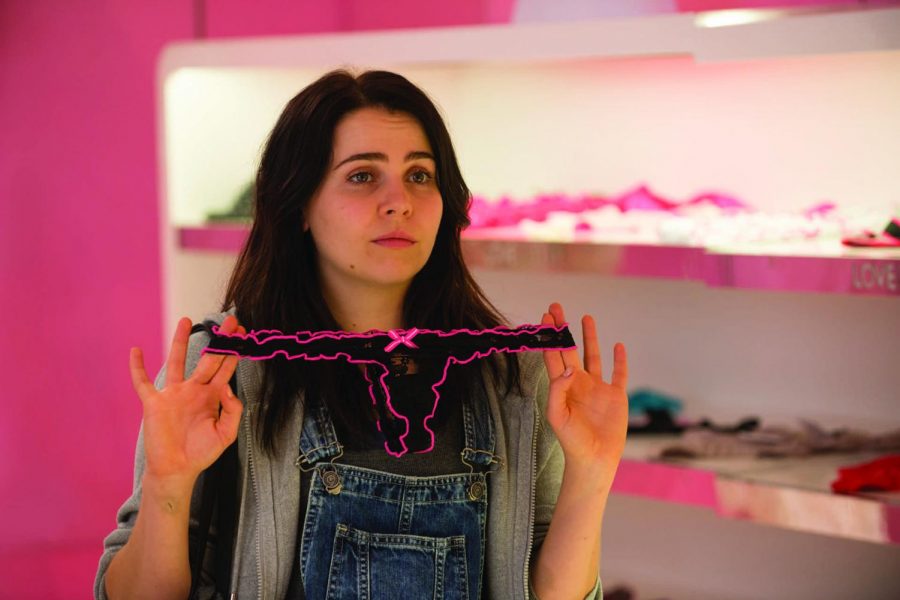‘The DUFF’ cast talks film, teen bullying
February 9, 2015
High school can be an awkward time leading some moviegoers to take solace in films that depict the reality of being young and feeling pressured to stand out.
In “The DUFF,” an upcoming comedy, director Ari Sandel addresses teen bullying by emphasizing the repercussions of cruel adolescent terminology and its effects on high school social hierarchies.
The film, set to premiere Feb. 20, follows a high school senior as she struggles with her identity after being labeled a “DUFF,” an acronym meaning a “designated ugly fat friend.” From dealing with catty best friends to yearning for the attention of the hottest guys in school, Bianca, played by Mae Whitman, (“The Perks of Being a Wallflower,” “Avatar: The Last Airbender”) finds herself lost in a high school nightmare dictated by labels.
Robbie Amell, (“The Tomorrow People”) plays Wesley, Bianca’s childhood best friend who betrays her by describing her as a DUFF to her other best friends, who are considered hotter and more popular than she is. While Wesley and Bianca’s friendship strengthens throughout the film, Wesley’s girlfriend, Madison, played by Bella Thorne, (“Shake It Up!” “Blended”) becomes jealous and acts as Bianca’s antagonist.
Although Bianca’s character faces her share of painful moments, she eventually finds happiness in just being herself—a common message in coming-of-age films.
The Chronicle spoke with Whitman, Amell and Thorne about their character inspiration, favorite scenes and their own high school bullying experiences.
THE CHRONICLE: How did each of you mentally prepare for your roles in the film?
MAE WHITMAN: I had to remember high school and how painful it was. I was bullied in school. I just went back to that unpleasant memory of how tough high school can be and conveyed that.
ROBBIE AMELL: The main preparation for me was hanging out with Mae and the rest of the cast and getting close to them so that people would buy that we were friends.
Did any of you experience this kind of labeling when you were in high school?
MW: I definitely was bullied and called weird names. That’s a big reason why I was drawn to doing this movie—to communicate that a lot of people go through this and that I certainly had. I wanted to use my experience to make people feel less alone. It gets better after high school.
RA: I grew up in Toronto, where everybody is polite and apologizes for everything. I had a very tame high school experience, but I always stood up for anybody that was getting bullied ‘cause it’s such a silly and stupid thing to do.
What about the plot of this movie interested you?
MW: I like the idea of breaking down the need for people to compare, judge, keep people down and keep people in specific boxes. It’s limiting for everyone involved and it’s just not real. It’s hard when you don’t have any perspective, especially when you’re in school and everything feels so present. I wanted to provide a perspective that none of that stuff is real and you don’t have to participate in anything that doesn’t make you feel like the best version of who you are. People that try to drag you down or put you in a box, it’s usually because they are insecure and [feel] threatened by you. It was important to me to communicate that the coolest kids in the world are bullied, just like me.
RA: It was super refreshing to read a teen comedy script that drafts what it’s like to be in high school. Everybody’s trying to find their way and figure out who they are and are dealing with their own issues and issues with friends. It was nice to see that in something that actually turned out to be so funny.
How do you feel being cast as high school stereotypes?
BELLA THORNE: I don’t like being a casted stereotype of a mean girl. That makes me really angry. I hope that I’m not doing any mean girl roles any time soon.
MW: If this movie didn’t have the understanding of the stereotypes, maybe it would feel a little more upsetting. But I think the whole point of this movie is exposing stereotypes and how silly they are. It was nice to start out by going, “Hey, here are these stereotypes,” and then spending the rest of the movie breaking them down and showing how you can let them go. It’s a statement about how layered and complex every single person is regardless of the labels put on them.








